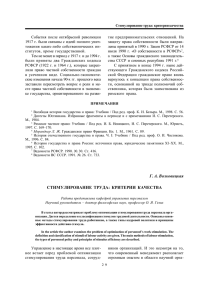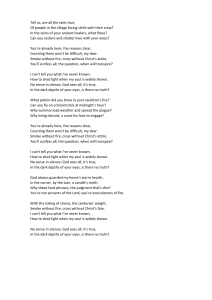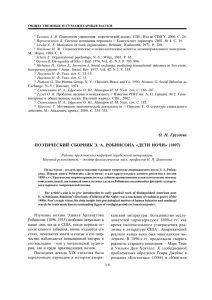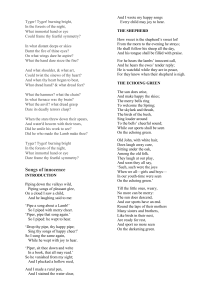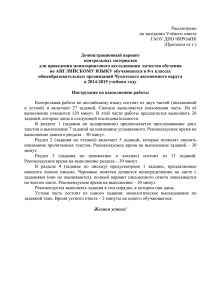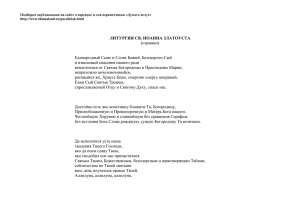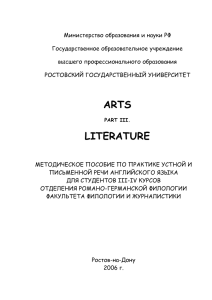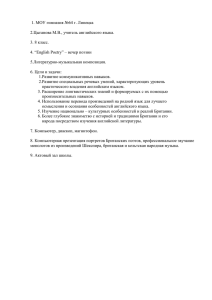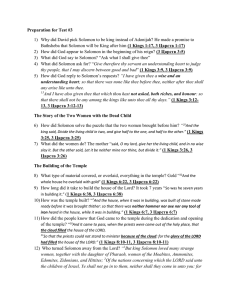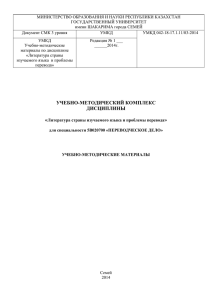Актуальнi проблеми слов`янської філології. Серія : лінгвістика i літе
реклама
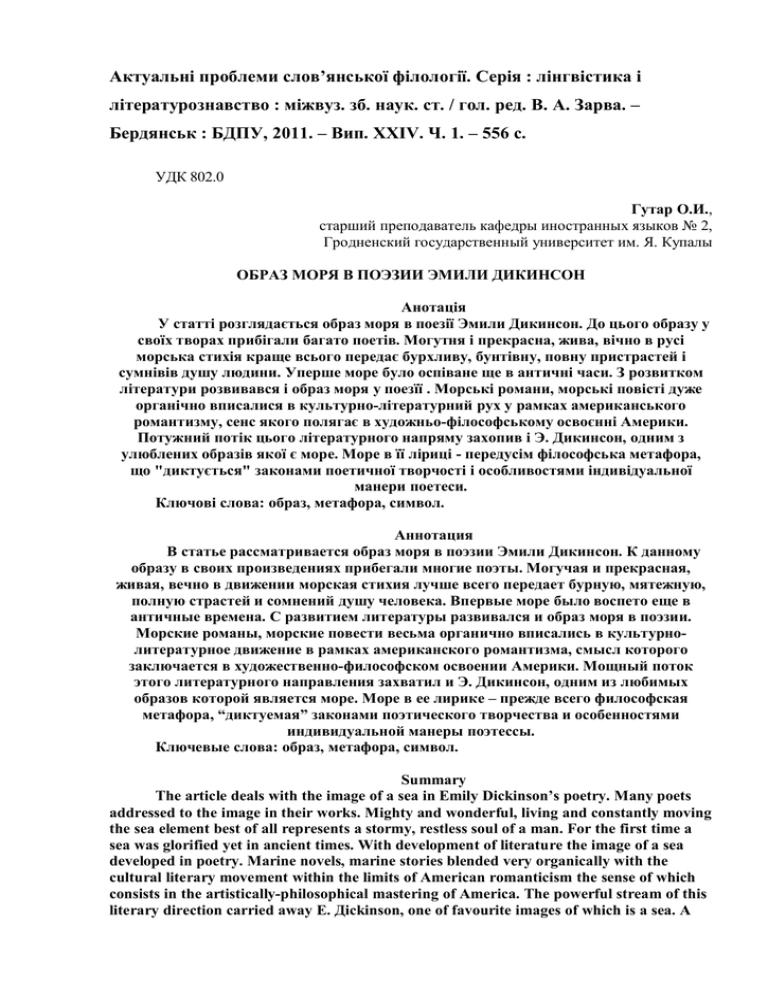
i . : : . . , 2011. – . ./ : . i . . . .– . XXIV. . 1. – 556 . 802.0 ., 2, . . . . , , , , . . i . , , . . . " , - , " . : , , . . . , , , , . . , . , . . . ,“ , – ” . : , , . Summary The article deals with the image of a sea in Emily Dickinson’s poetry. Many poets addressed to the image in their works. Mighty and wonderful, living and constantly moving the sea element best of all represents a stormy, restless soul of a man. For the first time a sea was glorified yet in ancient times. With development of literature the image of a sea developed in poetry. Marine novels, marine stories blended very organically with the cultural literary movement within the limits of American romanticism the sense of which consists in the artistically-philosophical mastering of America. The powerful stream of this literary direction carried away E. ickinson, one of favourite images of which is a sea. A sea in her lyric poetry – is foremost a philosophical metaphor, "dictated" by the laws of poetic works and the features of the poetess’ individual manner. Keywords: image, metaphor, symbol. – , , , , . . . . , , – . (1830–1886), . , “ ” 1052 (1865 .) “I never saw a Moor – …”: “I never saw a Moor – / I never saw the Sea – <…>” (“ –/ – <…>”) [5, 276–277]), – ”, , . , “ ” ( . “ , soul”, 76 (1859 .)), 739 (1863 .)), “ “ Exultation is the going Of an inland soul to sea, – Past the houses, past the headlands, Into deep eternity! Bred as we, among the mountains, Can the sailor understand The divine intoxication Of the first league out of land? – ), ” ( . ) ” (“an inland ” (“Wrecked Men”, , : , ! , ? ) [3, 98–99]. . . I many times thought Peace had come When Peace was far away – As Wrecked Men – deem they sight the Land – At Centre of the Sea – And struggle slacker – but to prove As hopelessly as I – How many the fictitious Shores – Before the Harbor be – – – – – – – – – . . . ) [1, 75]. , 76 (“ / ,/ <…>”). , – <…>”), !”) ,“ , , (“<…> (“<…> ”– , , . ” – , “ ” , . , . , , . 739 , , , , (“ – – <…> / <…> (“<…> – <…> / <…> – – – <…>”) – <…> / <…> / ”). 1754 ([?]) “To lose thee – sweeter than to gain…” / – , …” ) – . . ( ) , ( ), ( ), ( ; , , .“ , . ” , , , , “ ” , ( , ( ) “ ” , ) ) ( , . To lose thee – sweeter than to gain All other hearts I knew. ‘Tis true the drought is destitute, But then, I had the dew! The Caspian has its realms of sand, Its other realm of sea. Without the sterile perquisite, No Caspian could be [6, 107]. – ( ), , ), ( ( ) . ( ( ), )! , ( ) ( . ) ( ( – . .). , ) ). ( , “ 284 (1861 .)). . . : ?” [2, 408]. The Drop, that wrestles in the Sea – Forgets her own locality – As I – toward Thee – She knows herself an incense small – Yet small – she sighs if All – is All – How larger – be? The Ocean – smiles – at her Conceit – But she, forgetting Amphitrite – Pleads – “Me”? , – – – – – – – – – ? – – – , – –“ . . . – ”? ) , . . , “ ” [4, 168] ( ., ). , , – , , , – , . , , , , . . – , . , , “ ” , . 1. . . / . . .– .: , 2000. – 368 . 2. . . . / . . // . , : / . . . , . . , . . .– .: , 2007. – . 398–421. 3. . : / . . , . . – . : Symposium, 2000. – 339 . 4. . . . . . / . . .– : . , 1988. – 229 . 5. . . . : / . . . .– : , 2002. – 343 . 6. Stocks K. Emily Dickinson and the modern consciousness : a poet of our time / K. Stocks. – New York : St. Martin’s Press, 1988. – 121 p.
